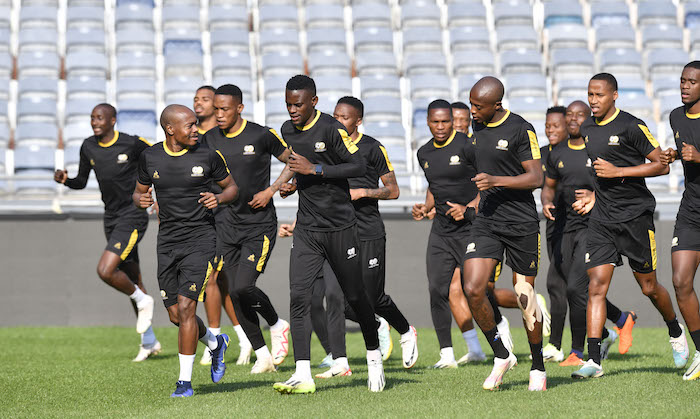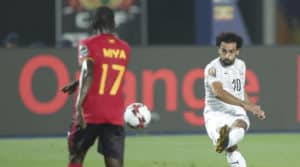Bafana Bafana will begin the long and winding road to the 2026 World Cup in November, writes Mark Gleeson.
Africa have dispensed with the three-tier qualifying system and will have only a single stage to decide who goes to the next World Cup in North America, with the continent kicking off the preliminaries in November.
Traditionally, Africa played a two- legged, home-and-away knockout competition to decide its World Cup representatives, then turned to a group system.
More recently they combined the two, a series of knockout matches to eliminate the lesser lights, then a group stage followed by two-legged playoffs.
It will be a lot simpler now, as Africa’s representation for the 2026 finals jumps from five in Qatar to nine, possibly 10, for the next tournament in Canada, Mexico and United States.
The draw for the nine groups, from which only the winner will automatically qualify, features all 54 Confederation of African Football member nations. This includes Eritrea, who have not taken part in international football in the past three years after a spate of defections of team members at matches.
The country on the horn of Africa has become a North Korea-like hermit state with many fleeing compulsory national service for its youth and a repressive regime.
It is a coup for CAF to have a full house of entrants for the qualifiers, although FIFA members do risk losing their subsidies from world football’s governing body if they do not enter a requisite number of competitions.
The draw was seeded according to the FIFA rankings, and eight of the top sides having participated at previous World Cups. Mali is the only exception.
South Africa were not among the seeds, but still unfortunate to land up in Group C with Nigeria. It is not the first time they have been paired together for World Cup qualification.
The Super Eagles have arguably the most talent-laden squad, with many players emerging on the European club circuit in recent seasons. The group also includes Zimbabwe, who have had their FIFA ban lifted.
Morocco, after their heroics in Qatar, will head Group E, with Zambia their strongest rivals.
Avram Grant has taken over Zambia and ensured qualification for the next Africa Cup of Nations finals, from which the Zambians have been absent for the most recent editions, though Morocco remain overwhelming favourites in the group.
Reigning African champions Senegal, who have qualified for two successive World Cups, look to have an easy path to a third in a row in Group B, where the Democratic Republic of Congo look their only credible opponent.
The Congolese, then known as Zaire, qualified for the 1974 World Cup and have always had plenty of potential, but have been hamstrung by chaotic administration that remains a massive handbrake on any potential success.
Cameroon’s eight previous World Cup finals appearances remain an African record and their win over Brazil in Qatar last November was a result they will dine out on for a while to come.
At first glance, the pairing of the Indomitable Lions with Angola and the Cape Verde Islands in Group D would seem a relatively simple task, but both of those Portuguese-speaking countries, especially the tiny archipelago, have proven a handful for Cameroon in the past, with a few upset results.
The draw also looks relatively good for Mo Salah’s (above) Egypt, Ivory Coast and Tunisia, who beat France at the most recent World Cup finals, but did not get past the first round.
Mali had a terrific opportunity to go to the 2022 finals, but a ridiculous own goal saw them edged by Tunisia in the playoffs, and they will have it tough in Group I, which they share with Ghana.
The qualifiers in Africa begin with two match days next month and continue from June next year after January’s Cup of Nations finals in the Ivory Coast. They will be completed in October 2025, with each country playing 10 games.
The four best group runners-up will be drawn into a knockout playoff to determine a sole Africa representative for the new-style intercontinental playoff for a potential extra African place at the finals. Those games are to be played in November 2025.
Photo by Sydney Mahlangu/BackpagePix





